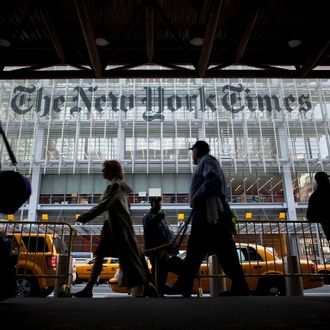
Arthur Brisbane’s Public Editor’s Journal — his blog — for the New York Times voices a stimulating question today that instantly became a target of media ridicule: “Should The Times Be a Truth Vigilante?” More specifically, Brisbane says he is “looking for reader input on whether and when New York Times news reporters should challenge ‘facts’ that are asserted by newsmakers they write about.” Well?
Brisbane has a topical example:
… on the campaign trail, Mitt Romney often says President Obama has made speeches “apologizing for America,” a phrase to which Paul Krugman objected in a December 23 column arguing that politics has advanced to the “post-truth” stage.
As an Op-Ed columnist, Mr. Krugman clearly has the freedom to call out what he thinks is a lie. My question for readers is: should news reporters do the same?
If so, then perhaps the next time Mr. Romney says the president has a habit of apologizing for his country, the reporter should insert a paragraph saying, more or less:
“The president has never used the word ‘apologize’ in a speech about U.S. policy or history. Any assertion that he has apologized for U.S. actions rests on a misleading interpretation of the president’s words.”
This leads to larger questions: “Is it possible to be objective and fair when the reporter is choosing to correct one fact over another? Are there other problems that The Times would face that I haven’t mentioned here?”
Now maybe the issue is tone, but Brisbane, whose job it is to think about things like this, appears willfully ignorant of concerns about the future of journalism raised, particularly on the Internet, for — and this is a conservative estimate — at least a decade now. (The media’s insistence on straining for unbiased reporting has been called “The View From Nowhere.”) Brisbane asked his readers to please leave a comment with their views, and already there are more than 200. “Yes,” said one reader, in response to the headline. On the other hand, Pete from Madison, Wisconsin, replied, “No need. Since losing my Times subscription, I have been relying on press releases. I find I am as well informed as ever.”





























